Pets have a place in the healing process through unique program
TRIPLER ARMY MEDICAL CENTER, Hawaii - Mac McDaniel is very proud of his Welsh terrier, Baxter.
Besides being a rare breed of dog in Hawaii, Baxter is also part of an elite team serving in the Tripler Army Medical Center (TAMC) Human Animal Bond program, which uses friendly canines and other animals to boost the spirits of patients, families and staff.
"Folks seem to enjoy it," said McDaniel. "He even has his own ID card, and he even smiled on it," he added, with a laugh.
McDaniel volunteered for the program after retiring from the Air Force because he wanted get out and share his dog with others.
The program brings volunteers and their pets to clinics, hospital wards and waiting areas for visits. TAMC's program has about 30 animals, mostly dogs, but a few cats and rabbits, too. Together they provide therapy by interacting with patients who have physical, mental and social illnesses.
On a recent visit to TAMC, McDaniel and Baxter met up with Kim Lyons and Liane Otsuka, walking their dogs through the hospital and greeting the patients there.
Lyons had her 9-month-old golden retriever, Milo, along with her. Milo received his Red Cross certification when he was just 6 months old, Lyons proudly noted.
Otsuka brought her 4-year-old golden retriever, Indy, who is named after the movie character, Indiana Jones.
"He's Milo's granduncle. We're related," Otsuka said.
During their visit to the hospital's Blood Donor Center, Otsuka's dog "saluted" Soldiers by raising his paw high into the air.
Capt. Chris Woodson, TAMC staff, and his sons greeted Baxter with smiles and pats on the pooch's head.
"We think it's great. If I'm ever in the hospital, that's who I want to visit," Woodson said.
"They're well-behaved," said Bernice Oshita, an American Red Cross volunteer, as she patted the heads of Milo and Indy in the TAMC Blood Donor Center.
Animals in the Human Animal Bond therapy program are screened and must pass strict behavioral and physical qualifications. Handlers also receive special training.
Dr. Steve Zuchowski, TAMC Department of Psychiatry, said the faces of nearly all of his patients brighten when the therapy dogs visit the in-patient ward.
"A few weeks ago, we had a patient who was very depressed and socially withdrawn," Zuchowski said. "She barely left her bed. As soon as she heard that a therapy dog was visiting the unit, she got up and began interacting with the dog and smiling."
She then improved much more rapidly, Zuchowski added.
Dr. Joy Hiramoto, TAMC Department of Psychiatry, used to participate in the Human Animal Bond program with her miniature schnauzer, Cinder. She believes the program is good for everyone.
"I have been a physician here at Tripler for the last 15 years, and having the therapy dogs on the unit brightens the spirits of both the staff and the patients, Hiramoto said.
For more information on how to become involved with the TAMC Human Animal Bond program, call American Red Cross coordinator Sue Rolsen at 808-433-6631.
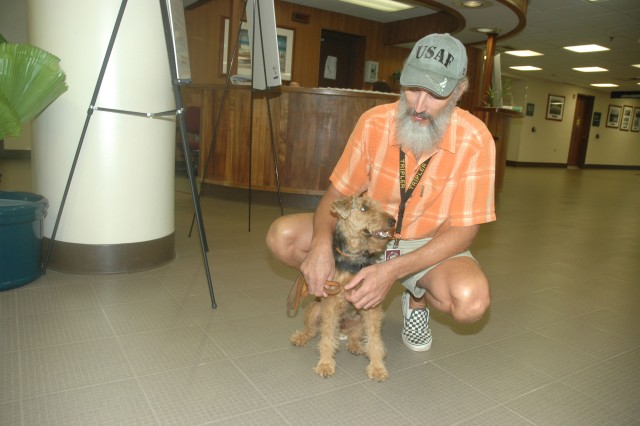
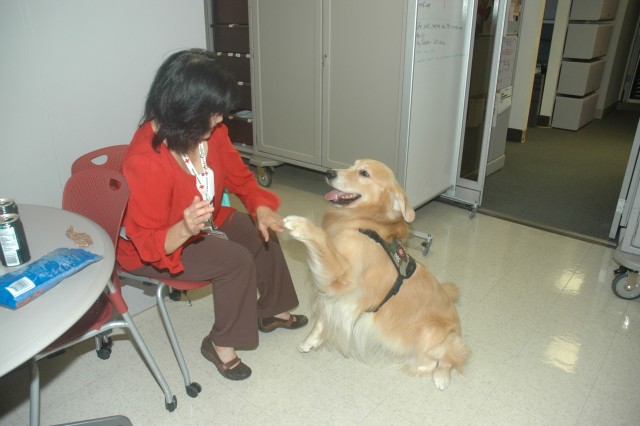
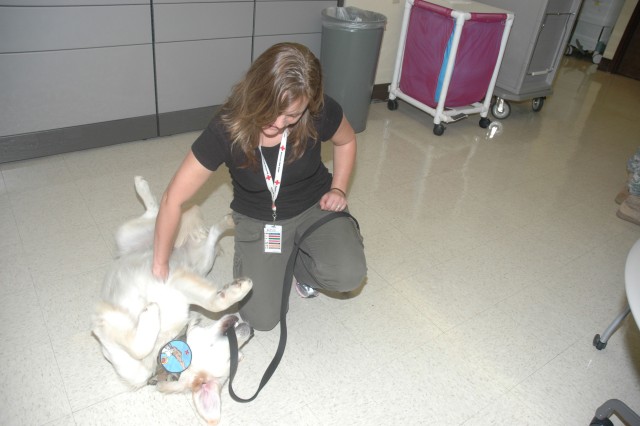
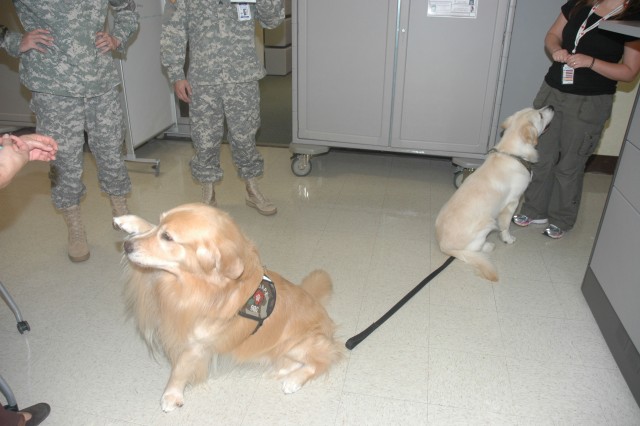
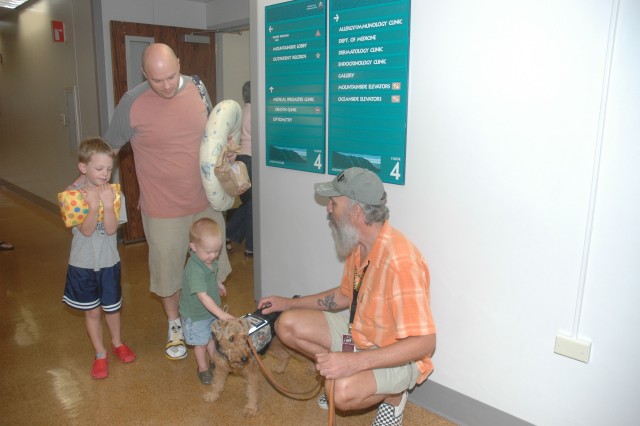
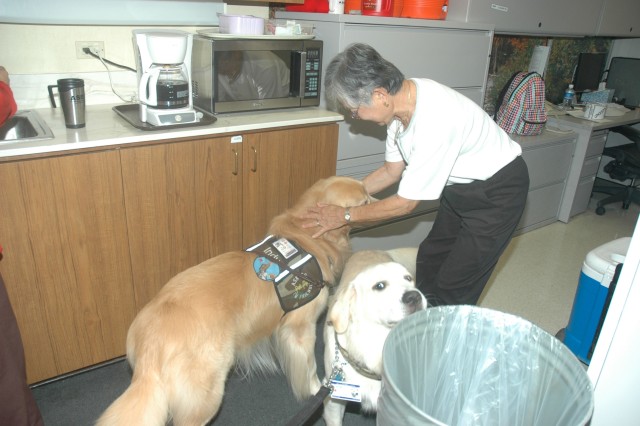
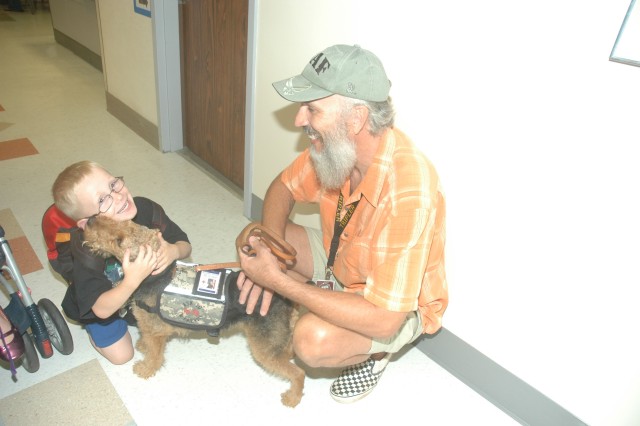
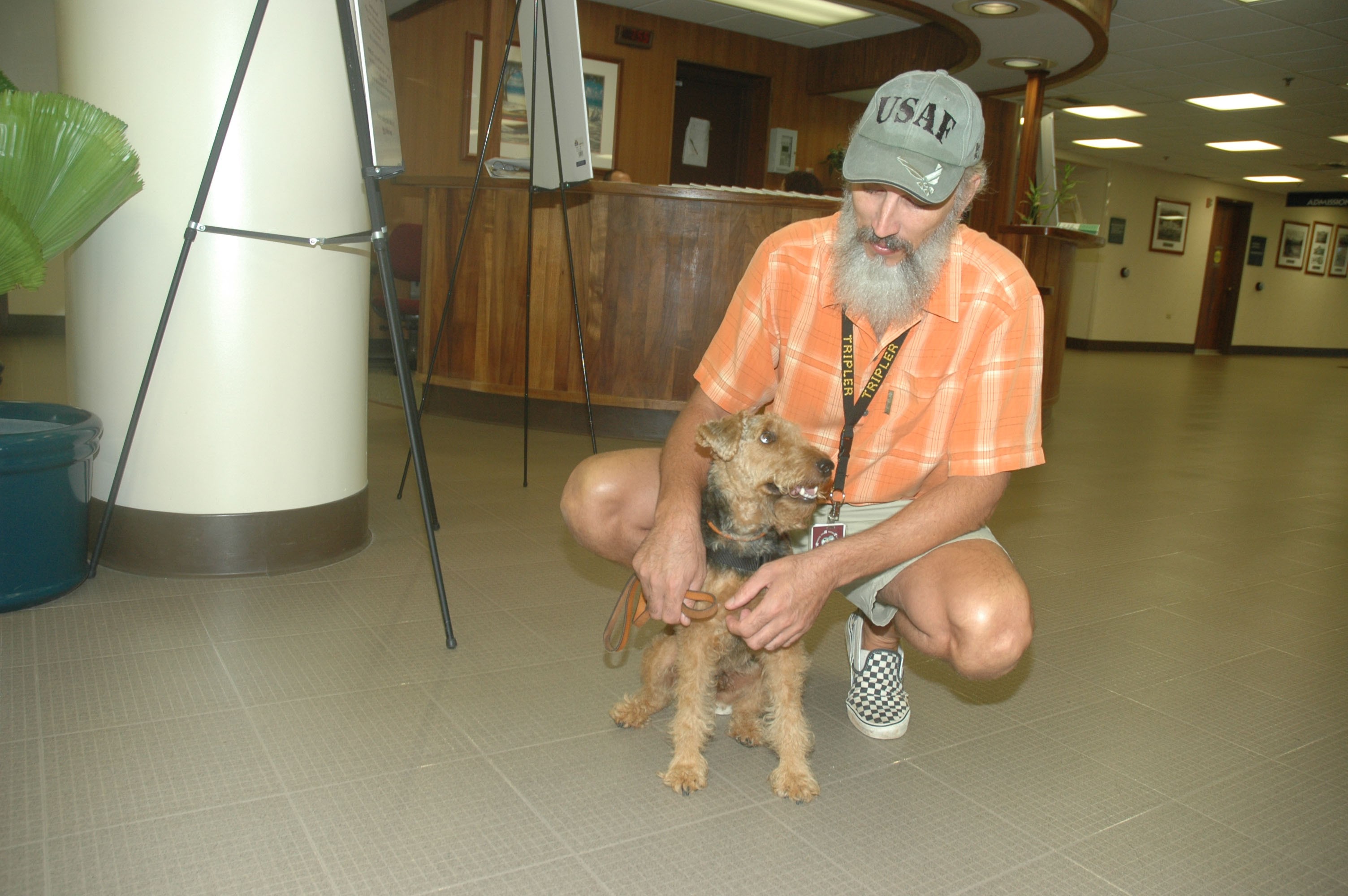
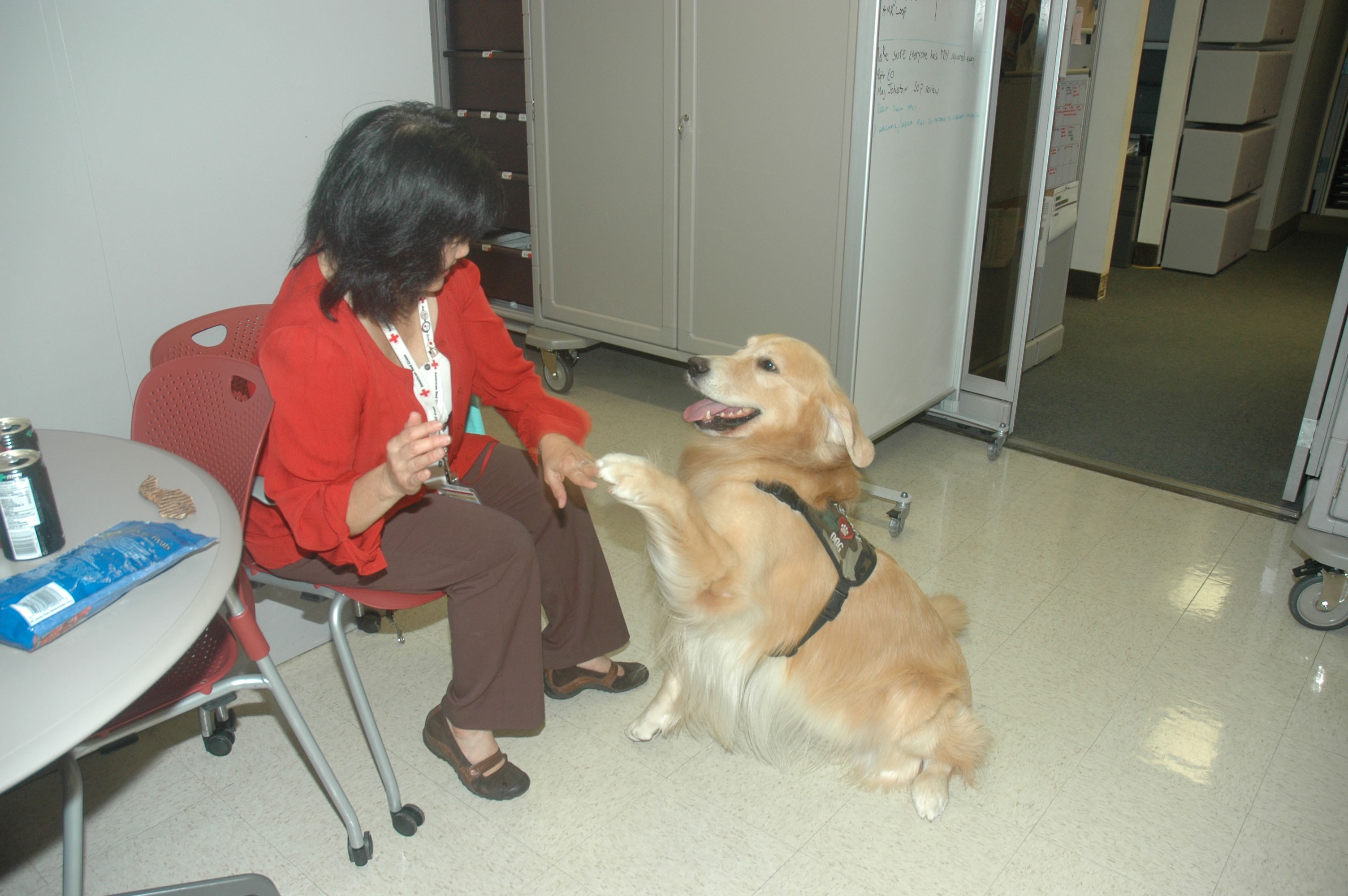

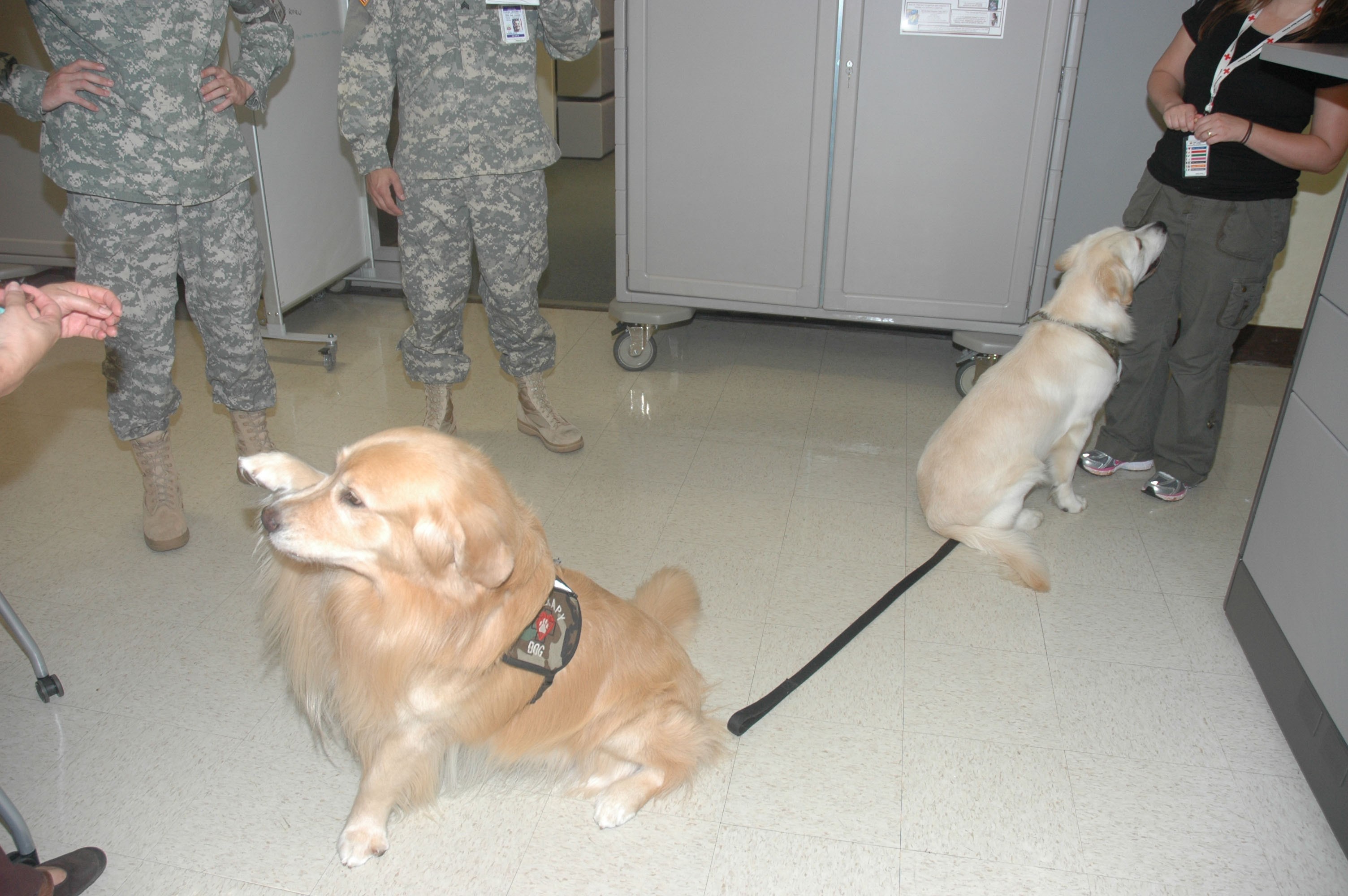

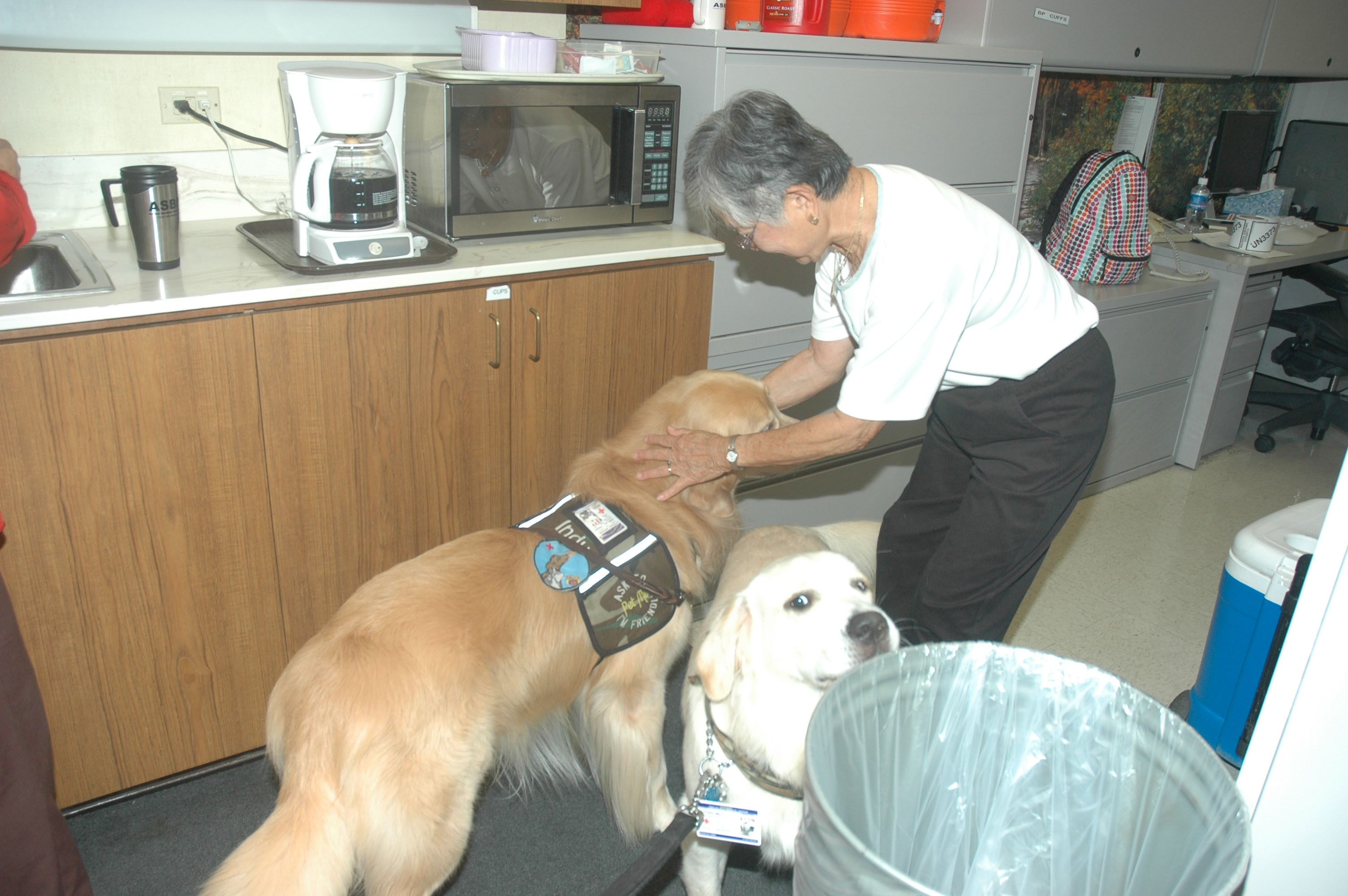
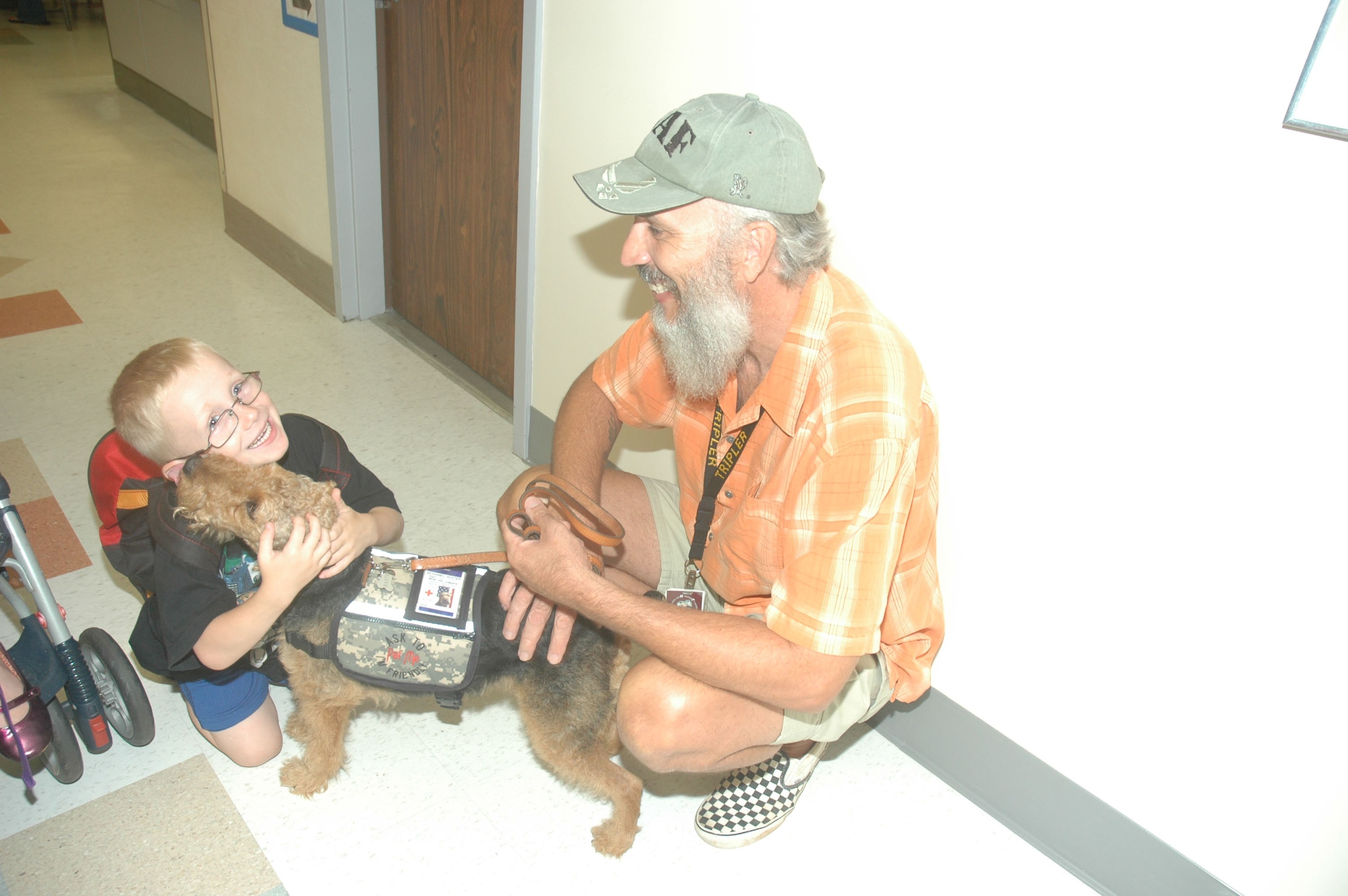
Social Sharing